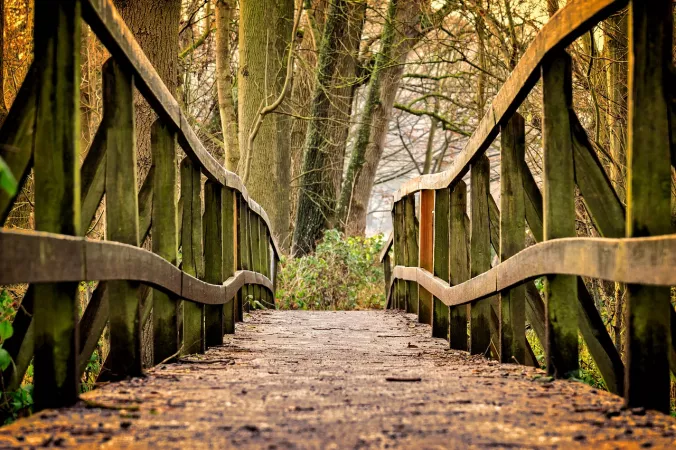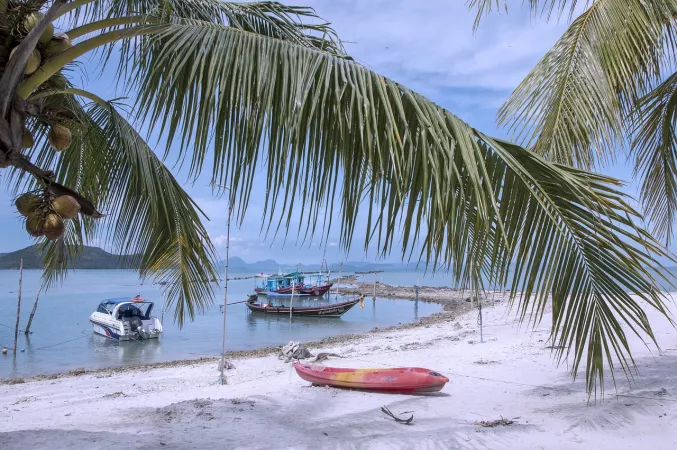
Hang Dong Travel Guide
Hang Dong, a charming district in Chiang Mai, Thailand, is known for its rich cultural heritage and stunning natural beauty. With a history dating back centuries, Hang Dong offers visitors a glimpse into Thailand's past while showcasing its modern development. The district is famous for its traditional handicrafts, vibrant markets, and lush landscapes, making it a must-visit destination for travelers seeking an authentic Thai experience.Top Attractions in Hang Dong
- Doi Inthanon National Park
- Baan Tawai Village
- Grand Canyon Water Park
- Hang Dong Market
- Wat Phra That Doi Kham
Hang Dong is Famous for
Handicrafts and traditional markets.Top Attractions in Hang Dong
Hang Dong offers a range of attractions and experiences for travelers to enjoy:- Exploring the lush landscapes of Doi Inthanon National Park
- Shopping for unique handicrafts at Baan Tawai Village
- Cooling off at the Grand Canyon Water Park
- Sampling local delicacies at Hang Dong Market
- Visiting the sacred temple of Wat Phra That Doi Kham
What's Great about Travelling to Hang Dong?
- Immersing in Thai culture and traditions
- Exploring natural wonders
- Experiencing local markets and cuisine
What's Not So Great about Travelling to Hang Dong?
- Limited public transportation options
- Hot and humid weather during certain months
- Crowded tourist areas
Travel Tips for Hang Dong
- Check visa requirements before traveling
- Consider renting a car for flexibility
- Stay hydrated and use sunscreen
Important Hang Dong trip information
- Ideal Duration: 3-4 days
- Best Time to Visit: November to February for cooler weather
- Nearby Airports and Railway Stations: Chiang Mai International Airport and Chiang Mai Railway Station
FAQ's on Hang Dong
Q1: What is the best time to visit Hang Dong?
The best time to visit Hang Dong is during the cooler months from November to February when the weather is pleasant for outdoor activities and sightseeing. This period also coincides with the festive season and local events, providing a vibrant cultural experience for visitors. Avoid the rainy season from June to October if you prefer drier weather for exploring the region.
Q2: Do I need a visa to travel to Hang Dong?
Tourists traveling to Hang Dong typically do not require a visa for short visits, depending on their nationality. However, it is essential to check the specific visa requirements based on your country of origin before traveling. Some nationalities may be eligible for visa-on-arrival or visa-free entry for a limited period.
Q3: What are the must-visit attractions in Hang Dong?
Hang Dong boasts a range of must-visit attractions, including the stunning Grand Canyon Chiang Mai for breathtaking views, the serene Hang Dong Canyon for nature lovers, and the bustling Hang Dong Market for a taste of local culture. Don't miss exploring the beautiful Wat Phra That Doi Kham temple and enjoying outdoor adventures at the lush Hang Dong Forest.
Q4: Is Hang Dong a safe place to travel?
Hang Dong is generally a safe destination for travelers, with low crime rates. However, it is advisable to take usual precautions such as safeguarding belongings and staying aware of your surroundings, especially in crowded tourist areas. Avoid isolated areas at night and follow local advice for a safe and enjoyable trip.
Q5: What is the local currency in Hang Dong and can I use credit cards?
The local currency in Hang Dong is the Thai Baht (THB). While credit cards are accepted at larger establishments and hotels, it is recommended to carry cash for smaller purchases and local markets. ATMs are easily accessible in urban areas for convenient currency exchange.
Q6: What is the local cuisine like in Hang Dong?
Hang Dong offers a diverse culinary scene with delicious Thai dishes such as Pad Thai, Tom Yum soup, and Green Curry. Visitors can savor authentic street food at markets like Hang Dong Market, indulge in traditional Northern Thai cuisine, and enjoy fresh fruits from local vendors. Vegetarian and vegan options are also available for those with dietary preferences.
Q7: What transportation options are available in Hang Dong?
Transportation options in Hang Dong include public buses, songthaews (shared taxis), tuk-tuks, and motorcycle taxis for short distances. Car rentals and private drivers are convenient for exploring the region independently. Additionally, Grab and local taxi services are available for hassle-free travel within the city and to nearby attractions.
Q8: Are there any cultural norms or etiquette I should be aware of when visiting Hang Dong?
When visiting Hang Dong, it is important to respect local customs such as removing shoes before entering temples, dressing modestly, and being mindful of Buddhist traditions. Greeting with a 'wai' (placing palms together) is customary, and showing respect to elders is highly valued. Avoid public displays of affection and be polite in interactions with locals to ensure a culturally sensitive experience.
Q9: I am a travel agent. How can I buy travel leads of Hang Dong?
Register yourself as a travel agent at agents.tripclap.com and then you can buy travel leads to Hang Dong once your account is approved. For more details contact our support team at +91-8069186564 or support@tripclap.com






